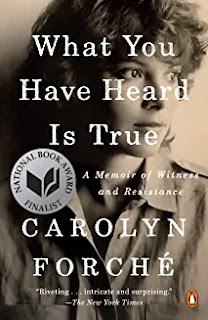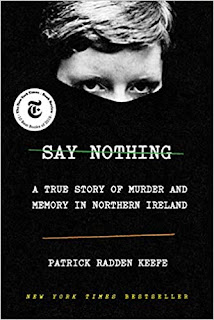Just last week, on February 24, 2020, film producer Harvey Weinstein was convicted of two of five felony charges, rape and criminal sexual assault, following a trial in which six women testified that he sexually assaulted them. Although more than 80 women have claimed that Weinstein sexually assaulted them, his accusers feared an acquittal. However, the #MeToo movement helped to shift cultural perceptions of sexual misconduct, especially in the workplace. So did an important story exposing Weinstein's behavior publically for the first time, written by Jodi Kantor and Megan Twohey and published in the
New York Times on October 5, 2017.
She Said: Breaking the Sexual Harassment Story That Helped Ignite a Movement by Jodi Kantor and Megan Twohey is the story of how they got that story.
Reviewers have compared
She Said to
All the President's Men, a book about the investigative journalism by Carl Bernstein and Bob Woodward that revealed the Watergate scandal. Similarly,
She Said is about Kantor and Twohey's reporting as much as or even more than it is about Weinstein's abuses. It is about the persistence of these two reporters, the steadfast guidance of their editors, and the courage of the women who agreed to tell their stories on the record so that other women might feel able to come forward. Their reporting revealed that Weinstein had repeatedly abused his power over these women's employment to obtain sexual favors or outright assaulted them and then abused his power to silence them with nondisclosure agreements. His company knowingly and willingly colluded in these behaviors. Weinstein and his legal team investigated and intimidated Kantor and Twohey and their sources throughout their investigation.
What do you think? Have you ever spoken up about an experience when you feared it might have been safer and easier to remain silent? Why did you speak up? What was your experience like? In their preface, Kantor and Twohey ask two questions: "Why this story?"and "In a world in which so much feels stuck, how does this sort of seismic social change occur?" Do you feel the book answers these questions? What was it about the Weinstein story that captured public attention? What did you find interesting about the process of investigative journalism as described in
She Said? What does the book reveal about its techniques, ethics, and importance? According to articles in the
New York Times and
Vox, at Kantor and Twohey's request, Bob Woodward interviewed them at an event at Sixth and I in Washington, DC. During the interview, Woodward repeatedly interrupted Kantor and Twohey and posed questions that seemed to indicate he didn't understand the true nature of sexual assault and harassment. He insisted that Weinstein's behavior was about sex, not power, even calling it "a weird foreplay." What does this interview say about our culture? Have perceptions of sexual misconduct, especially in the workplace, really shifted? Some say the pendulum of public opinion has swung too far, others not far enough. The Ford/Kavenaugh story brought up important questions regarding how to handle incidents from the past. Will we be able to create mutually fair rules and protections for both parties in a claim of sexual misconduct? What is the key to real change? According to articles in the
Washington Post and in
Vulture, Weinstein's lawyer Donna Rotunno, who calls herself the "ultimate feminist," said in her closing statements at his trial that the case "strips adult women of common sense, autonomy and responsibility, and she reminded the jury that they were participating in a criminal trial, not a court of public opinion and "we are not here to criminalize morality." What do you think of her statements after Weinstein's conviction? What do you think of women like Rotunno and Lisa Bloom who profit from defending men accused of sexual misconduct?
We hope you will join the discussion: Tuesday, March 3, at 6:30 p.m. at Main Library; Thursday, March 19, at 11:00 a.m. at West Ashley Branch Library; and here on the blog.














